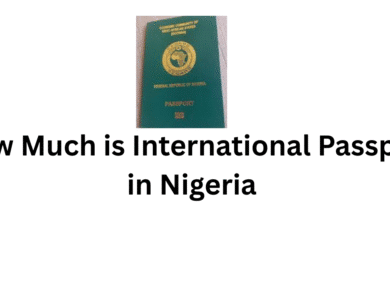Planning a trip or move to the United States from Nigeria? One of the first and most critical steps is understanding the financial cost of the visa application. The process can seem daunting, but knowing the specific fees for your visa type is essential for a smooth application. This post breaks down exactly how much a U.S. visa costs in Nigeria, from the standard visitor visa to more specialized work and student visas. We’ll cover the current fee structure, what the payment covers, and what to keep in mind to avoid common mistakes.
What is the U.S. Visa Fee?
The U.S. visa fee, officially known as the Machine Readable Visa (MRV) fee, is a mandatory payment for processing your visa application. This fee is standard globally and is a separate charge from other potential costs, such as the SEVIS (Student and Exchange Visitor Information System) fee, which is required for F, M, and J visa applicants.
It’s crucial to understand that the fee is for the application process and is non-refundable, meaning you won’t get your money back if your application is denied. This is a common point of confusion for many applicants. The visa fee also doesn’t guarantee visa approval.
How Much is America Visa Fee in Nigeria
Standard Nonimmigrant Visa Fees
For most common visa types, the fee is a fixed amount. These visas do not require a petition to be filed with U.S. Citizenship and Immigration Services (USCIS) beforehand.
- $185: This is the fee for the most popular nonimmigrant visa categories. It includes:
- B1/B2 Visas: For tourism, business, or medical treatment.
- F and M Visas: For academic and vocational students.
- J Visas: For exchange visitors (unless sponsored by the U.S. government).
Petition-Based Visa Fees
These visas are for temporary workers and other specific categories that require a U.S. employer or entity to file a petition on your behalf with USCIS before you can apply.
- $205: This fee applies to most petition-based visas, including:
- H Visas: Temporary workers, professionals, and trainees.
- L Visas: Intracompany transferees.
- O Visas: Individuals with extraordinary ability.
- P Visas: Athletes, artists, and entertainers.
- Q Visas: International cultural exchange visitors.
- R Visas: Religious workers.
Other Visa Categories and Their Fees
Some visa types have their own unique fee structures due to the specific nature of the application.
- E Visas ($315): For treaty traders and investors.
- K Visas ($265): For a fiancé(e) or spouse of a U.S. citizen.
- Immigrant Visas ($325 - $345): Fees for those seeking to permanently live in the U.S. as a family member or through employment.
Additional Fees to Consider
For some applicants, there may be extra costs beyond the standard MRV fee.
- SEVIS Fee: This is a separate, mandatory fee for students and exchange visitors (F, M, and J visa applicants). It funds the Student and Exchange Visitor Information System.
- F and M Students: $350
- Most J Exchange Visitors: $220
- Note: You must pay this fee and receive a receipt before your visa interview. The SEVIS fee is a separate payment from the MRV fee.
- Fraud Prevention and Detection Fee: First-time applicants for certain L visas who are part of a blanket petition must pay a $500 fee at the time of their interview.
How to Pay the Visa Fee in Nigeria
The U.S. Embassy in Nigeria generally directs applicants to pay their visa fees through specific banks. It is crucial to follow the instructions on the official U.S. Embassy or Consulate website in Nigeria to ensure your payment is processed correctly. The fee must be paid in the local currency (Naira) at the bank’s current exchange rate.
After payment, you will receive a receipt that is essential for scheduling your visa appointment. Remember that the fee is valid for a limited time (typically one year) from the date of payment, so be sure to schedule your interview within that period.
Conclusion
Completing a U.S. visa application from Nigeria can feel like a complex process, but understanding the financial components is a major step toward success. The key takeaway is that the costs are not uniform they depend entirely on your visa category. From the standard nonimmigrant visa fees to the separate SEVIS fee for students and exchange visitors, each cost is tied to a specific part of the application and processing system.
By paying the correct amount through the designated channels and being aware that these fees are non-refundable, you can avoid common pitfalls and move forward confidently. Always refer to the official U.S. Embassy and Consulate in Nigeria websites for the most current fee information and payment instructions, as rates and procedures can change. With careful preparation and a clear understanding of the costs involved, you are well on your way to a successful application.













